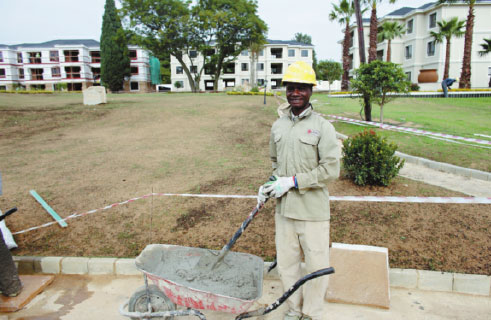 |
|
A local employee with Galencia Property (Pty) Ltd at a housing project in South Africa. WANG JING/CHINA DAILY |
Chinese real estate developer uses innovation to stay ahead of the game in the South African market, Xing Zhigang and Li Jiabao report from Johannesburg
Manufacturing and trading companies have consistently been in the limelight when it comes to China's economic strides in Africa. And while some small companies occasionally make their mark abroad, it is quite rare for a Chinese real estate developer to be touted for its innovation in an overseas market.
But that is exactly what one privately owned developer from China has been doing in South Africa for over a decade now.
|
 |

|
"I can proudly say that we, to a large extent, influence the overall trends in the South African property markets," said Cheng Cheng, Galencia's CEO and executive director.
"Profit is not our sole objective," he said. "Instead, we are more brand-oriented and want to be the real estate company that provides the most valuable services in Africa."
Galencia has businesses ranging from property design to construction, and sales to management, Cheng said in an interview in Midrand, Johannesburg.
"We are using the business model perfected by our Chinese parent - Huaqiao Fenghuang Group - to succeed in South Africa. Providing value-added services like gardening and interior decoration are part of this strategy," he said.
In 2004, the Sichuan-based parent company decided to tap into overseas markets, as it felt it could profit from the lower costs and easy availability of land in places such as South Africa, Cheng said.
"Lower development costs were another reason why we zeroed in on the South African market," he said, adding that they account for just 15 percent of average project costs.
